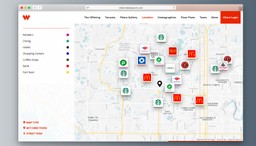
Marketing Best Practices
10 Reasons Why You Need a Property Management Website
As the global pandemic continues to drive astonishing advances in digital life, the commercial real estate industry is adapting rapidly with exciting innovations.
Now more than ever, building owners and property managers are discovering that engaging, informative, and accessible property management websites can deliver a wide range of advantages in today’s marketplace.
Along with most other aspects of their businesses, prospective and current tenants today expect to be able to accomplish a variety of tasks 24/7 with a click or tap of a screen.
Why do you need a property management website?
Beyond simply existing as digital signage or self-service portals, a well-developed property management website helps property owners and managers streamline services and communications by providing an intuitive information hub that empowers prospects and tenants to easily access everything they need.
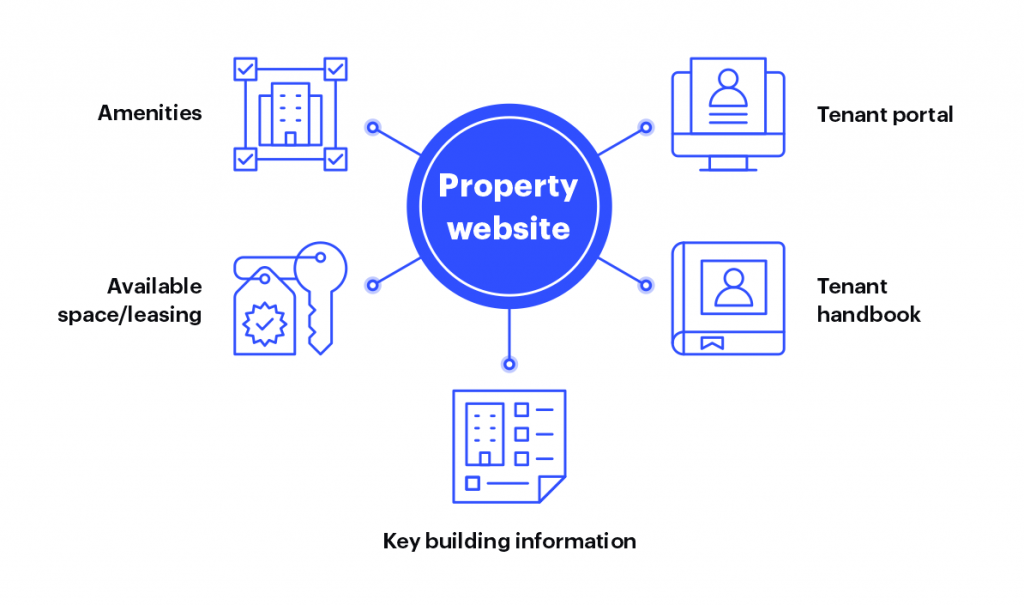
Here are 10 reasons why a property management website can help enhance the prospective and current tenant experience from end-to-end.
1. Make your property easy to find with a comprehensive digital identity
As with any business, you need a professional and inviting digital presence for your properties.
Ensuring that every key detail about your property can be found quickly and accurately will benefit prospective tenants, current tenants, employees, visitors, customers, management, and more. That’s why the front-facing website needs to be optimized, user-friendly, and searchable online.
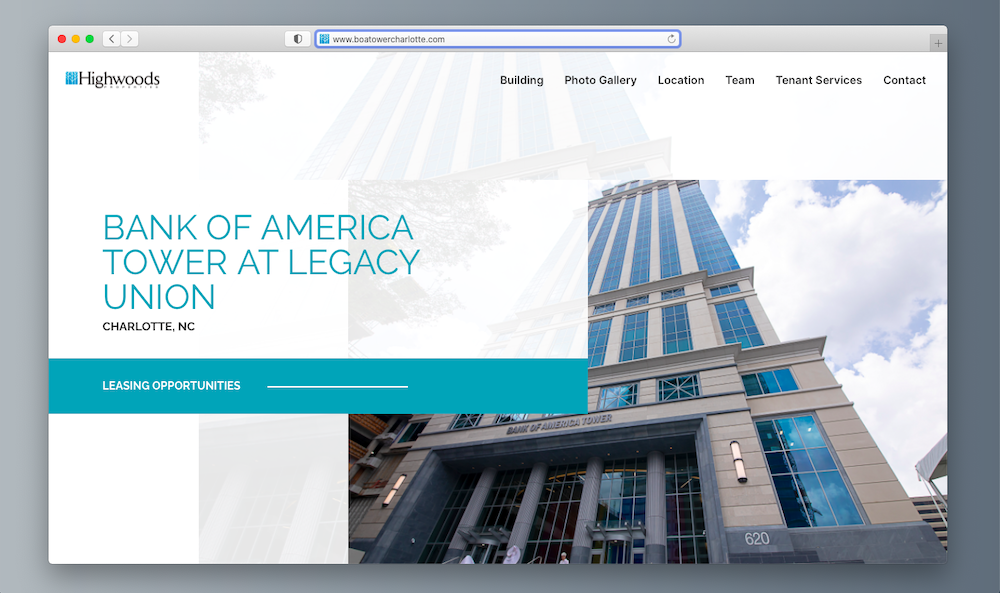
Additionally, an effective property management website combines the required front-facing, public elements with user-restricted portals in a seamless manner.
You will want to choose a property website template that facilitates integration with other dedicated solutions to ease interactions between building owners, property managers, and commercial tenants.
2. Create a centralized client-facing layer for your tenants
Organization is king when it comes to creating a successful property management website. You want a solution that offers one clear, accessible, and centralized digital home for your property. Then on this foundation, you can integrate third-party tools to streamline the workflow for property management teams while enhancing the overall experience for your current and prospective tenants. You can integrate with tools such as:
- Work order requests
- Scheduling & calendars
- Building communications
A thoughtfully designed property website is the gateway to every tool, service, and type of information they might need.
3. Effectively highlight amenities and key property information
Key property information should be prioritized and displayed front and center for all visitors. Presenting these details in a strategic flow will offer the best user experience.
For general visitors, start with an overview of the property and neighborhood, as well as size, class, type, and design style.
Those with specific interests can then discover clearly laid-out sections listing certifications, rankings, awards, and other facts or highlights like size breakdown, year built, and special design or technology features. Additionally, your property website is also an opportunity to highlight the location and most attractive features of the area. One engaging way of doing this is to add an interactive map of useful amenities nearby.
4. Improve visibility of services and building details
Your property management website should offer an easily accessible section that summarizes the most pertinent information from your Tenant Handbook for prospective and current tenants, employees, vendors, and visitors. You can include the most commonly requested details, such as:
- General info about key card access and hours
- Cleaning services
- Parking hours, types, and locations
- Security locations and hours
- Construction services
- Key and card access details (including the number issued per unit, washrooms, additional purchase)
- Signage descriptions and location details
- Holiday closures
- Mail delivery service and schedule, as well as pick-up and express carrier info
- Maintenance requests with link to tenant portal
- Property management contact info
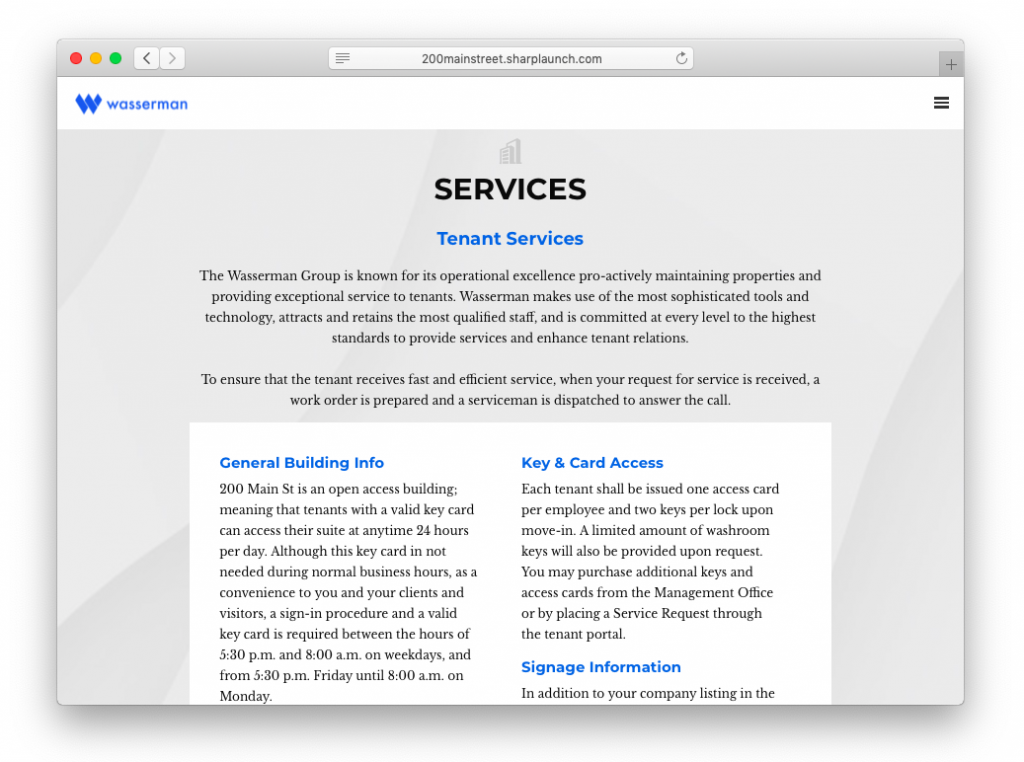
5. Market available spaces in a compelling fashion
Your property website is an invaluable opportunity to make the best virtual impression, which is increasingly important these days, and helps bring your vacant spaces to life in an engaging and appealing way. Ensure your site includes beautiful photos, interactive virtual tours, and easy-to-access details about available units with downloadable floor plans (PDFs).
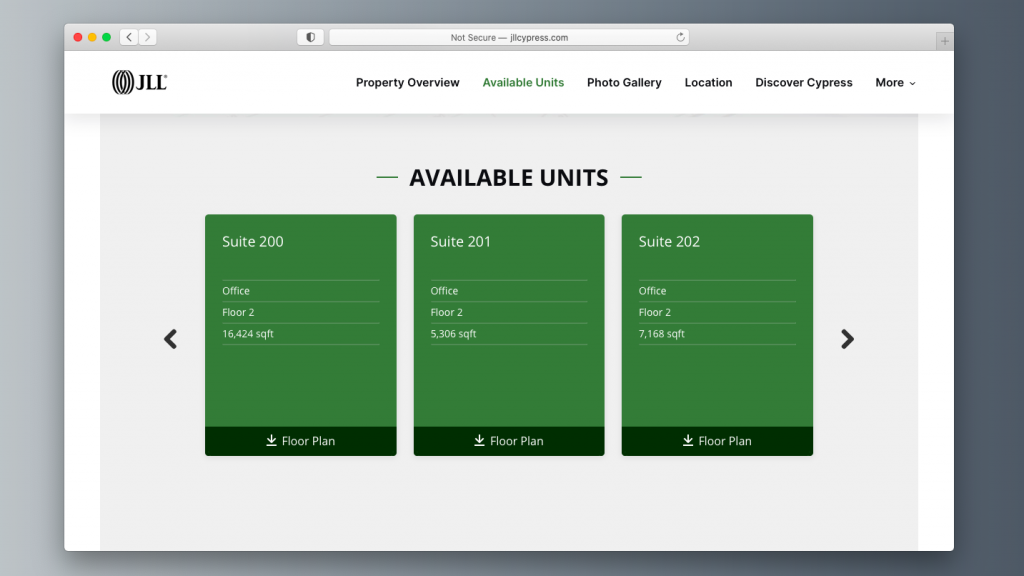
6. Create a sense of connection and community
In the brave new world of living virtually and working remotely, a sense of belonging to a community is more important than ever.
Choose a property management website template that can easily integrate tools like tenant experience apps or tenant portals that facilitate connections between tenants, including message boards, interactive directories, instant messaging, and more.
These services help build a digital community that tenants can interact with every day, at any time, at their own pace and convenience, to foster feelings of connectivity and satisfaction.
7. Easily share your Tenant Handbook
Along with encouraging communication between tenants, a property management website can provide ways to boost communication between tenants and management.
A document portal can help streamline paperwork and offer easy access to key materials such as a Tenant Handbook.
To proactively keep tenants informed and engaged, it is particularly beneficial to have a shared secure area for tenants to access documents like a Tenant Handbook detailing the building rules and regulations or other community-related documents, like an events schedule, restaurant menus, and more.
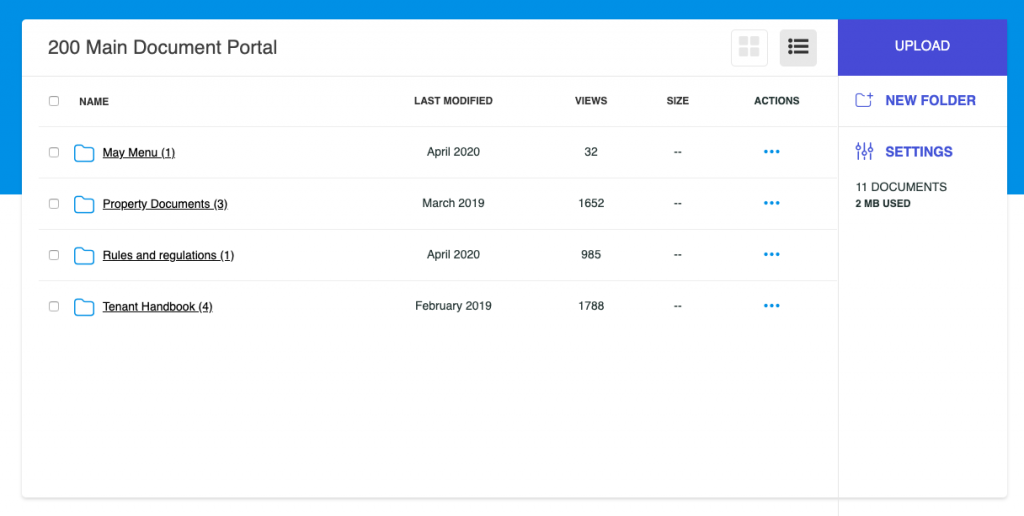
8. Adapt to the changing needs of the building
One of the greatest advantages of working in the digital space is how fluid, adaptable, and flexible it can be to varied and changing objectives.
Ensure that your property management website template is customizable so that you can tailor it to the needs of the building lifecycle — whether needed for leasing/marketing or optimized for tenant communications.
This will allow you to take a holistic approach in considering the distinct desires and interests of website visitors and property managers.
Prospective tenants and current tenants will want to frequent different areas of the site more often than others. Property managers want helpful tenant information to be highly accessible to ease their administrative burden. Marketing and leasing teams want to be able to quickly showcase the latest openings and availabilities in the most attractive way possible.
9. Gather invaluable data
Running smoothly behind the scenes, data-gathering tools can allow you to collect and present detailed insights on website traffic and sources, visitor behavior and interests, tenant satisfaction and pain points, and energy usage trends.
You can then draw upon these insights for future improvements to monetize and market your building for greater revenue and retention. A customizable property site can also complement other third-party tools for backend management like lease creation, payment terms modeling and processing, maintenance request processing, and other accounting activities.
10. Reduce administrative workload
Comprehensively presenting your property online works for you 24/7 by proactively answering questions, avoiding confusion, attracting interest, and reducing the administrative workload for marketing, leasing, and management teams, allowing them to prioritize key interactions.
All-in-one technology platforms like SharpLaunch deliver a dedicated digital space where all of these critical elements can be hosted in a user-friendly way. Pertinent details and other property management platforms and internal transaction systems can all be integrated in a centralized, interconnected online hub that represents that particular property in the best, most-professional light.
Related Blog Posts
CRE Technology
5 Reasons Why Salesforce Needs a CRE Marketing Platform
Salesforce isn’t only the most widely used CRM, it’s also the leading choice in the...
Company updates
Streamline Your Outreach with Tag-Based Email Campaigns
We are thrilled to announce the launch of our new Tag-Based Email Campaign feature, designed...
Company updates
SharpLaunch Announces New Integration with LandSearch
We’re excited to announce a groundbreaking integration with LandSearch, a prominent online...

